
Life unbridled, a venture into the absolute other, requires the total destruction not only of ‘my’ work, but of the very concept of work and economy as the basis of human relationships.
— Jean Weir
If the anarchist project can seem incomprehensible to those who have learned to accept the necessity of being ruled, who have learned to prefer security to freedom, that project understood in its totality, as the complete overturning of all social relations based on obligation and compulsion, can even be incomprehensible to many anarchists. The idea of the destruction of work is frequently met with incomprehension. And this comes in more than one form.
The most frequent form of incomprehension I have encountered when I have spoken of the destruction of work is that which simply exclaims: “But we have to eat!” In certain ways this reaction is quite similar to the response to the call for the destruction of prisons, cops and states which cries: “But then rape, robbery and murder would run rampant!” It is a response that stems from habit — we have always lived a certain way. Within this way specific institutions are said to fulfill specific needs — thus, work and the economy are the institutional framework through which food is provided within the present system of social relationships, and we know of no others (except by rumor). So the thought of a world without work evokes visions of starvation precisely at the point where the capacity to dream stops.
Another form of incomprehension involves confusion over what work is. This stems in part from the fact that the word can be used in ambiguous ways. I may, indeed, say that I am “working” on an article for WD or on a translation. But when I am doing these things, it is, in fact, not work, because there is nothing compelling me to do them, I have no obligation to do them; I do them solely for my own pleasure. And here is where the basic meaning of work and its destruction becomes clear.
Work is an economic social relationship based upon compulsion. The institutions of property and commodity exchange place a price tag upon survival. This forces each of us to find ways to buy our survival or to accept the utter precariousness of a life of constant theft. In the former case, we can only buy our survival precisely by selling large portions of our lives away — this is why we refer to work as wage slavery — a slave is one whose life is owned by another, and when we work, capital owns our lives. And with the world domination of capital, increasingly the totality of existence is permeated by the world of work — there is no moment that is our own unless we ferociously rip it from the grip of this world. Though it is true that wage slavery cannot be equated with chattel slavery, it is also true that the masters of this world, in referring to us as “human resources”, make it very clear how they view us. So survival with a price tag is always opposed to life and work is the form this opposition takes.
But theft (and its poor cousin, dumpster diving) does not in itself free us from work. “Even robbing banks or reappropriating goods remains within the logic of capital if the individual perpetrator of the deed does not already have their own project in motion” (Jean Weir). And here is one of the most common misunderstandings of an anti-work perspective: confusing the avoidance of having a job with the attack on the world of work. This confusion manifests in a practical emphasis on methods for surviving without a job. Thus, survival continues to take precedence over life. One encounters so many people now within certain anarchist-influenced subcultures, who know where all the dumpsters, all the free feeds, all the easy shoplifting stores, etc. are, but who have no concept of what to do with their lives beyond surviving on the streets. The individual with a clear idea of her project who, for example, chooses to take a job temporarily at a printers in order to learn the skills and steal as much material as she needs to start her own anarchist publishing projecting — quitting the job as soon as his projectual tasks are accomplished — is acting far more pointedly against the world of work than the individual who spends his days wandering from dumpster to dumpster, thinking only of how he’s avoided a job.
Work is a social relationship or, more precisely, part of a network of social relationships based upon domination and exploitation. The destruction of work (as opposed to its mere avoidance), therefore, cannot be accomplished by a single individual. One who tried would still find herself trapped within the world of work, forced to deal with its realities and the choices it imposes. Nor can work be destroyed separately from the complete destruction of the system of social relationships of which it is a part. Thus, the attack against work starts from our struggle to reapproriate our lives. But this struggle encounters the walls of the prison that surrounds us everywhere, and so must become the struggle to destroy an entire social world, because only in a world that is absolutely other, what some have called a “world turned upside-down”, will our lives ever truly be our own. Now we can snatch moments and spaces — and indeed this is necessary in order to give us the time to reflect upon what we, as individuals, really want to do with our lives. But the task remains before us of breaking down the prison walls.
In fact, the anarchist insurrectionary project, whether thought of in terms of work, the state, the family, the economy, property, technology, religion, law or any other institutions of domination, remains the same. The world of domination is one. The institutions form a network, and one cannot escape through the cracks. We must destroy the net and adventure into the unknown, having made the decision to find ways to relate and create our exist that are absolutely other, ways that we can experiment now, but only in our struggle to destroy this world, because only in this struggle can we snatch the time and space we need for such experiments. And in speaking of a world that is absolutely other, there is little one can say. When asked, “But if we destroy work, how will we eat?”, all one can say is, “We will figure that out as we go along.” And, of course, that is not satisfying for those who want easy answers. But if our desire is to make our lives our own, and if this requires a world that is absolutely other than the social world in which we live, we cannot expect to have the words for that world. Where would we find them here, where even the primitivists must resort to economic comparisons and an accounting of hours of work to valorize their utopia? As we destroy the old world and experiment with new ways to live, the words will come, if they are desired. Their shadows are sometimes visible in poetry, but if we realize our lives poetically, will we even still desire the words?
http://theanarchistlibrary.org/HTML/Various_Authors__Willful_Disobedience_Volume_4__number_1.html#toc5
Per un mondo assolutamente altro
Per un mondo assolutamente altro
Una vita sfrenata, un viaggio nell’altro assoluto, richiede la totale distruzione non solo del “mio” lavoro, ma anche del vero concetto di lavoro ed economia in quanto basi delle relazioni umane. Jean Weir
Se il progetto anarchico può risultare incomprensibile a quelli che hanno imparato ad accettare la necessità di essere governati e a preferire la sicurezza alla libertà, questo progetto inteso nella sua totalità, come completo rovesciamento di tutte le relazioni sociali basate sull’obbligo e sulla forzatura, può essere incomprensibile persino per molti anarchici. L’idea della distruzione del lavoro va frequentemente incontro a incomprensioni. E ciò succede in più di una forma.
Il tipo più frequente di incomprensione che ho incontrato quando ho parlato di distruzione del lavoro consiste nella banale esclamazione: “Ma dobbiamo mangiare!”. Per alcuni versi questa reazione è piuttosto simile alla risposta all’appello per la distruzione delle prigioni, con poliziotti e stati che si lamentano: “Ma allora poi gli stupratori, i ladri e gli assassini sarebbero a piede libero!”. Questa è una risposta che nasce dall’ambiente – abbiamo sempre vissuto in un certo modo. Dentro questo modo ci sono istituzioni specifiche addette a soddisfare bisogni particolari – infatti, il lavoro e l’economia sono i contesti istituzionali attraverso i quali il cibo viene fornito all’interno dell’attuale sistema di relazioni sociali, e non ne conosciamo altri (se non per sentito dire). Cosi l’idea di un mondo senza lavoro evoca visioni di carestia soprattutto quando termina la capacità di sognare.
Un altro tipo di incomprensione riguarda la confusione su cosa sia il lavoro. Questo nasce in parte dal fatto che questa parola può essere usata in modo ambiguo. Io posso, infatti, dire che sto “lavorando” a un articolo per WD o a una traduzione. Ma quando faccio queste cose, non si tratta di lavoro, perché non c’è nulla che mi costringe a farle, non ho l’obbligo di farle; le faccio solamente per il mio piacere personale. Ed è qui che diventano chiari il significato basilare del lavoro e della sua distruzione.
Il lavoro è una relazione sociale economica basata sulla costrizione. Le istituzioni della proprietà e dello scambio di merci assegnano alla sopravvivenza un’etichetta con il prezzo. Ciò costringe ciascuno di noi a cercare modi per comprare la nostra sopravvivenza o ad accettare la totale precarietà di una vita di costante furto. Nel primo caso, possiamo comprare la nostra sopravvivenza solamente vendendo ampie porzioni delle nostre vite – ecco perché ci riferiamo al lavoro come schiavitù salariale – schiavo è chi ha la propria vita posseduta da un altro, e quando lavoriamo, il capitale possiede le nostre vite. E con il dominio mondiale del capitale, sempre di più la totalità dell’esistenza è permeata dal mondo del lavoro – non c’è un momento che è nostro tranne se lo strappiamo con ferocia dalla presa di questo mondo. Sebbene è vero che la schiavitù salariale non può essere equiparata con quella umana, è vero anche che i padroni di questo mondo, riferendosi a noi come “risorse umane”, dimostrano molto chiaramente in che modo ci vedono. Pertanto la sopravvivenza con un’etichetta prezzata è sempre in opposizione alla vita ed il lavoro è la forma di opposizione che essa prende.
Ma il furto (e il suo cugino povero, il rovistare tra i rifiuti) non ci libera in se dal lavoro. “Anche rapinare banche o riappropriarsi della merce rimane all’interno della logica del capitale se l’individuo che compie ciò non ha già altri progetti in corso” (Jean Weir). E qui c’è una delle più comuni incomprensioni della prospettiva anti-lavoro: si confonde il fare a meno del lavoro con l’attacco al mondo del lavoro. Questa confusione si manifesta in un’enfasi pratica nei confronti dei modi per sopravvivere senza un lavoro. Infatti, la sopravvivenza continua ad avere la precedenza rispetto alla vita. Adesso si incontrano molte persone all’interno di alcune sottoculture influenzate dall’anarchia, le quali sanno dove stanno tutti i cassonetti, i cibi gratuiti, i negozi facilmente rapinabili, ecc, ma non hanno idea di cosa fare con le proprie vite oltre alla sopravvivenza per strada. L’individuo con una chiara idea di progetto che, per esempio, consiste nel lavorare temporaneamente in una copisteria al fine di imparare le competenze e rubare il materiale necessario per iniziare il proprio progetto editoriale anarchico – terminando di lavorare appena il progetto è compiuto – agisce più direttamente contro il mondo del lavoro rispetto all’individuo che passa le giornate girovagando da un cassonetto all’altro, pensando solo a come fare a meno di lavorare.
Il lavoro è una relazione sociale o, più precisamente, parte di una rete di relazioni sociali basate sul dominio e sullo sfruttamento. La distruzione del lavoro (opposta al semplice evitarlo), pertanto, non può essere compiuta da un singolo individuo. Chi ci prova si ritrova intrappolato nel mondo del lavoro, costretto a fare i conti con la sua realtà e le scelte che esso impone. E il lavoro non può nemmeno essere distrutto separatamente dalla completa distruzione del sistema di relazioni sociali del quale esso è parte. Dunque, l’attacco contro il lavoro inizia dalla nostra lotta per la riappropriazione delle nostre vite. Ma essa incontra le mura della prigione che ci circonda ovunque, e quindi deve iniziare a distruggere un intero mondo sociale, perché solo in un mondo che è assolutamento altro, ciò che alcuni hanno chiamato “mondo capovolto”, le nostre vite potranno essere davvero nostre. Adesso possiamo strapparte momenti e spazi – e infatti ciò è necessario per darci il tempo di riflettere su ciò che, come individui, vogliamo davvero fare con le nostre vite. Ma il compito che ci resta è quello di abbattere le mura della prigione.
Infatti, il progetto anarchico insurrezionale, se pensato in termini di lavoro, stato, famiglia, economia, proprietà, tecnologia, religione, legge o qualsiasi altra istituzione del dominio, resta lo stesso. Il mondo del dominio è uno. Le istituzioni formano una rete, e non si può scappare attraverso le crepe. Dobbiamo distruggere la rete e avventurarci verso l’ignoto, avendo preso la decisione di cercare strade per intrecciare e creare la nostre esistenze che siano assolutamente altre, strade che possiamo sperimentare adesso, ma solo nella nostra lotta per distruggere questo mondo, perché solo in questa lotta possiamo sottrarre il tempo e lo spazio che ci serve per tali sperimentazioni. E parlando di un mondo che è assolutamente altro, c’è una piccola cosa che si può dire. Quando viene chiesto, “Ma se distruggiamo il lavoro, come mangeremo?”, tutto ciò che si può rispondere è “Lo capiremo strada facendo”. Ciò, ovviamente, non è soddisfacente per quelli che vogliono risposte facili. Ma se il nostro desiderio è di fare proprie le nostre vite, e se esso richiede un mondo che è assolutamente altro rispetto al mondo sociale nel quale viviamo, non possiamo aspettarci di avere le parole per quel mondo. Come potremmo trovarle qui, se anche i primitivisti ricorrono ai paragoni economici e ad un ammontare di ore di lavoro per avvalorare la loro utopia? Mentre distruggeremo il vecchio mondo e sperimenteremo nuovi modi di vivere, le parole arriveranno, se saranno desiderate. La loro ombra è visibile qualche volta nella poesia, ma se realizziamo poeticamente le nostre vite, continueremo a desiderare le parole?
Willful Disobedience Vol. 4
http://parolearmate.noblogs.org/2012/03/09/it-en-per-un-mondo-assolutamente-altro/#more-210



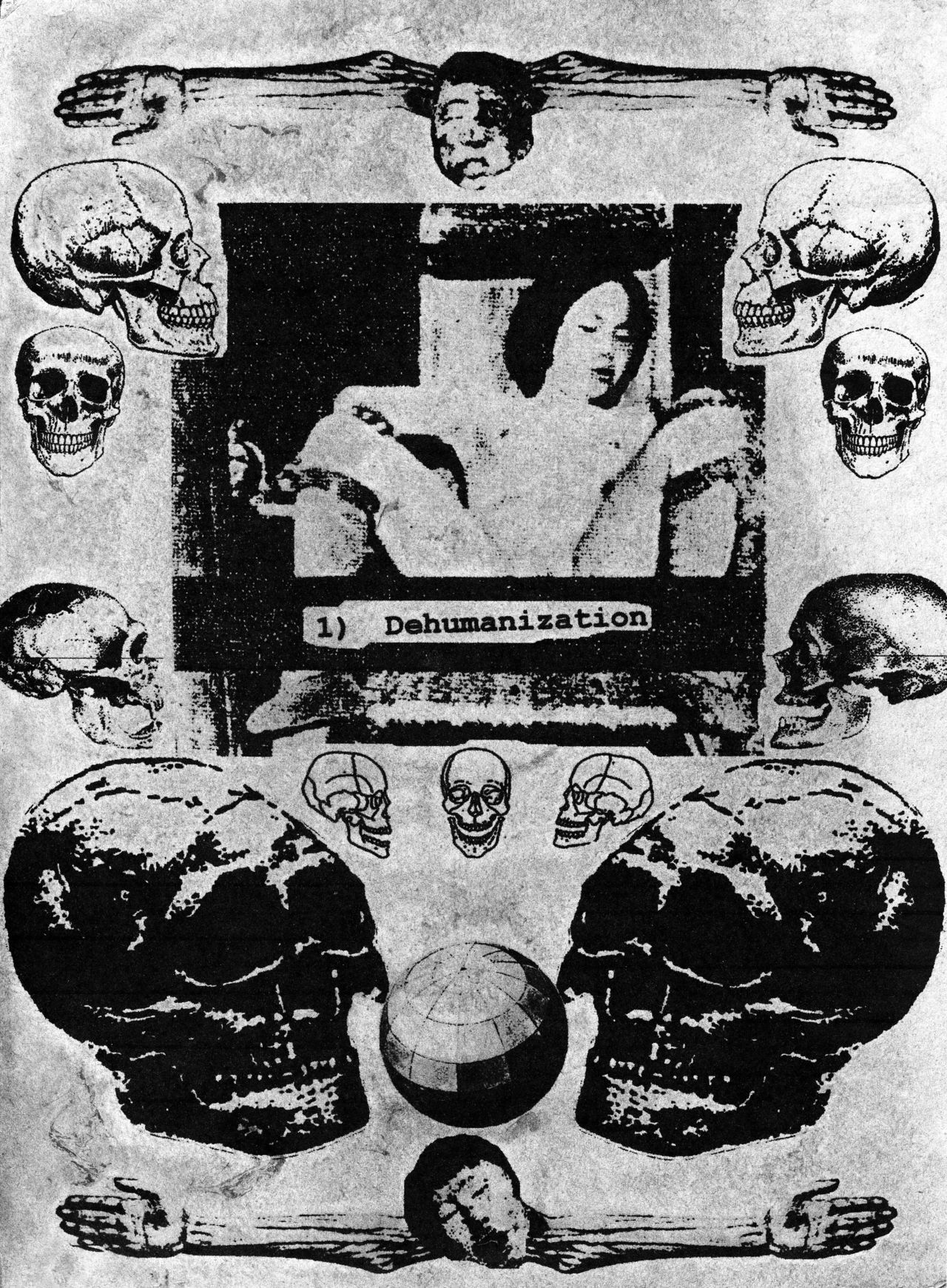



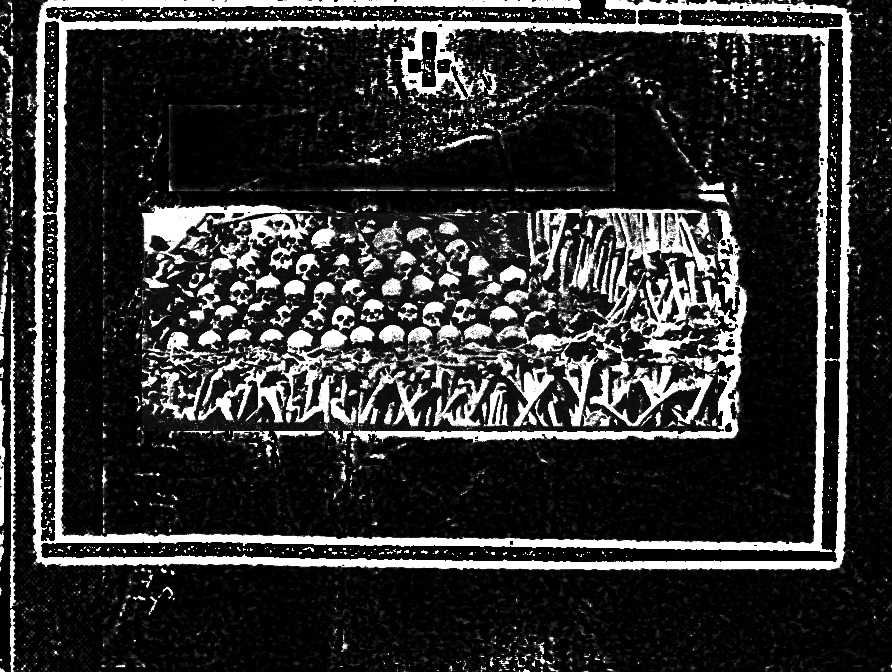
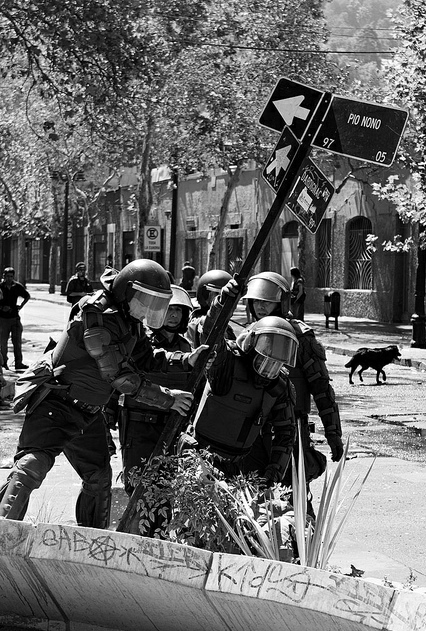





![Eurorepressione - Sulla conferenza a Den Haag sul tema "Anarchia" [corretto]](http://25.media.tumblr.com/tumblr_m0jvngOXtY1qa2163o1_1280.jpg)
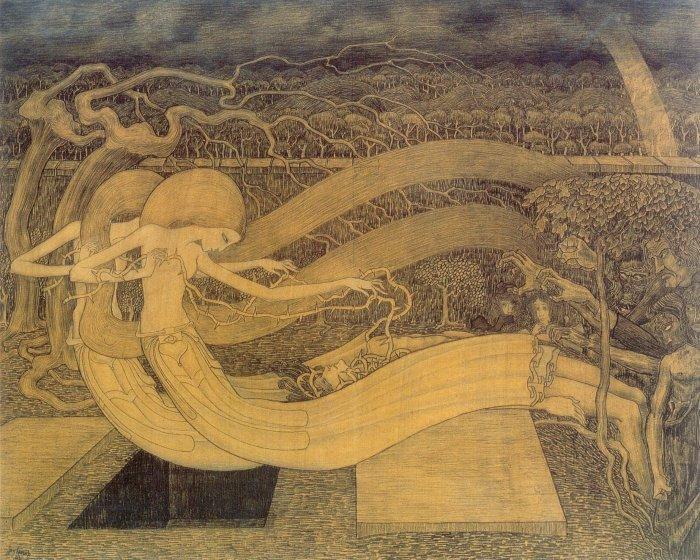
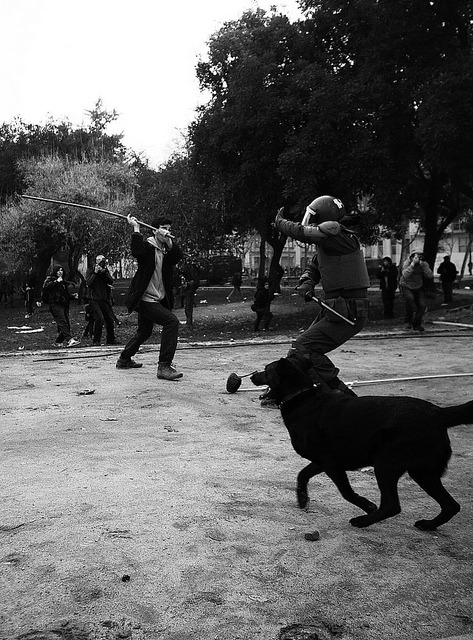
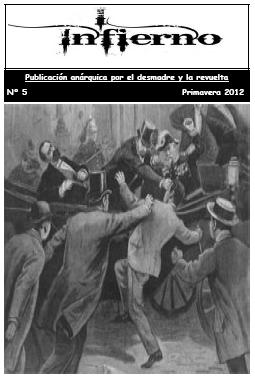
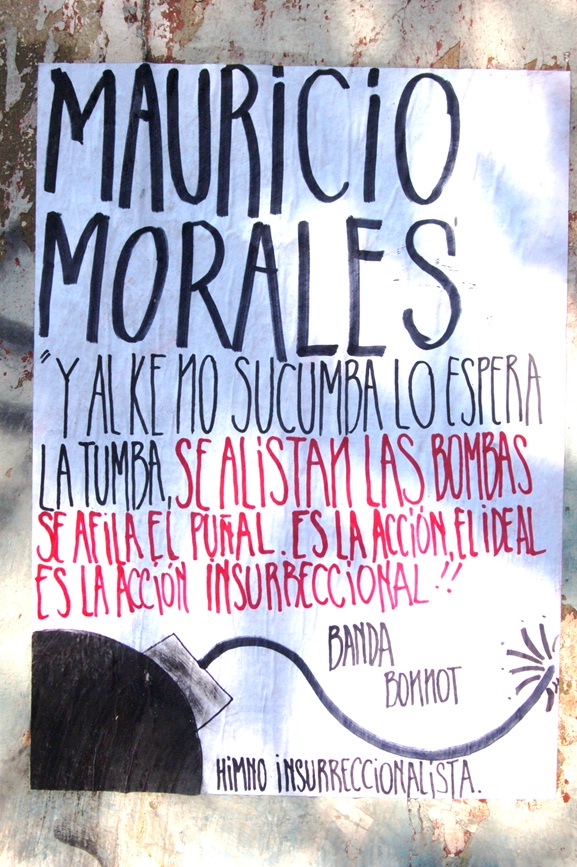
![A tres años de la Partida de Mauricio Morales: De la Memoria a la Calle [Stgo.]](http://metiendoruido.com/wp-content/uploads/2012/05/mmacividad.jpg)

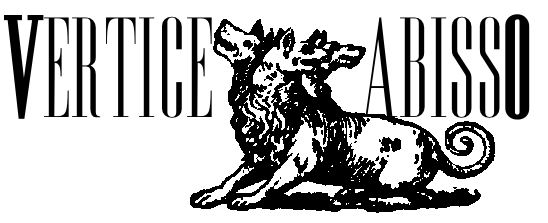



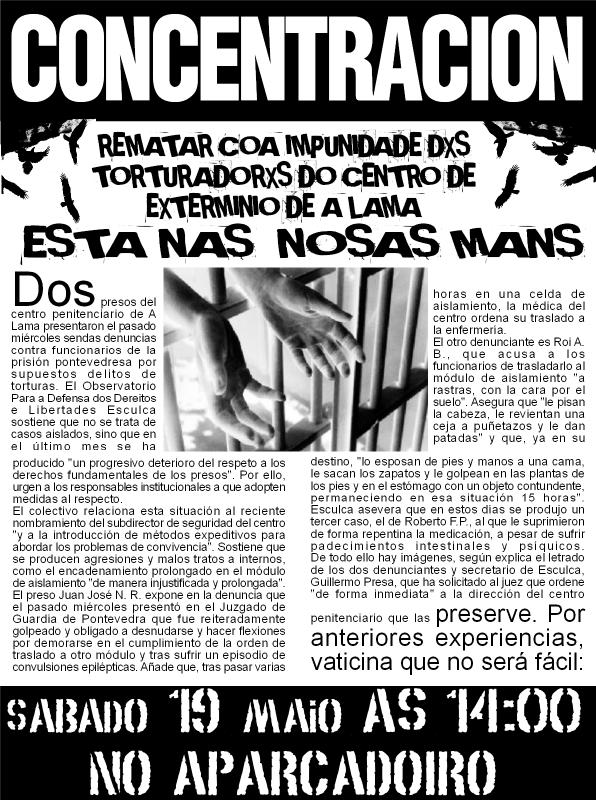

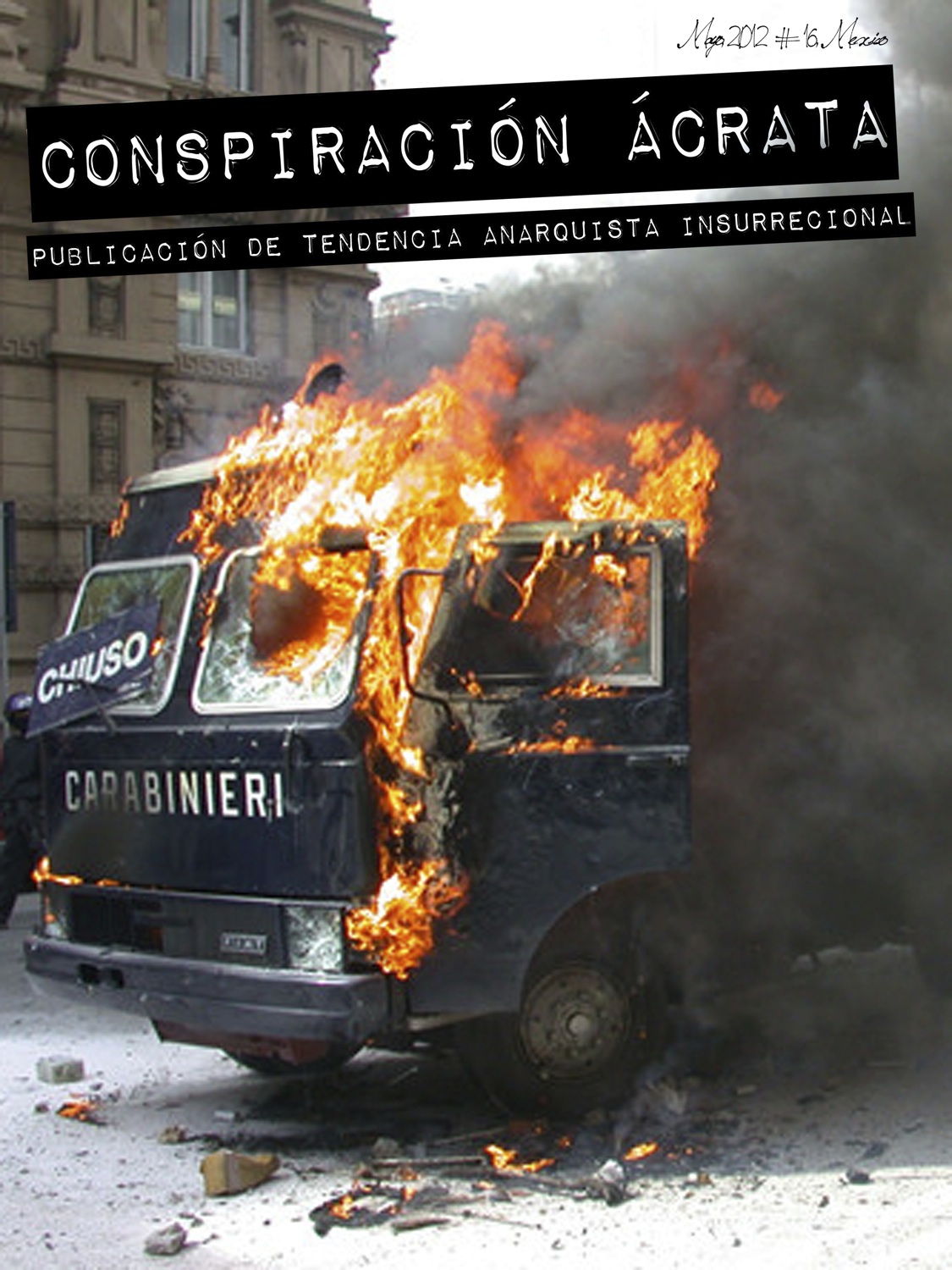

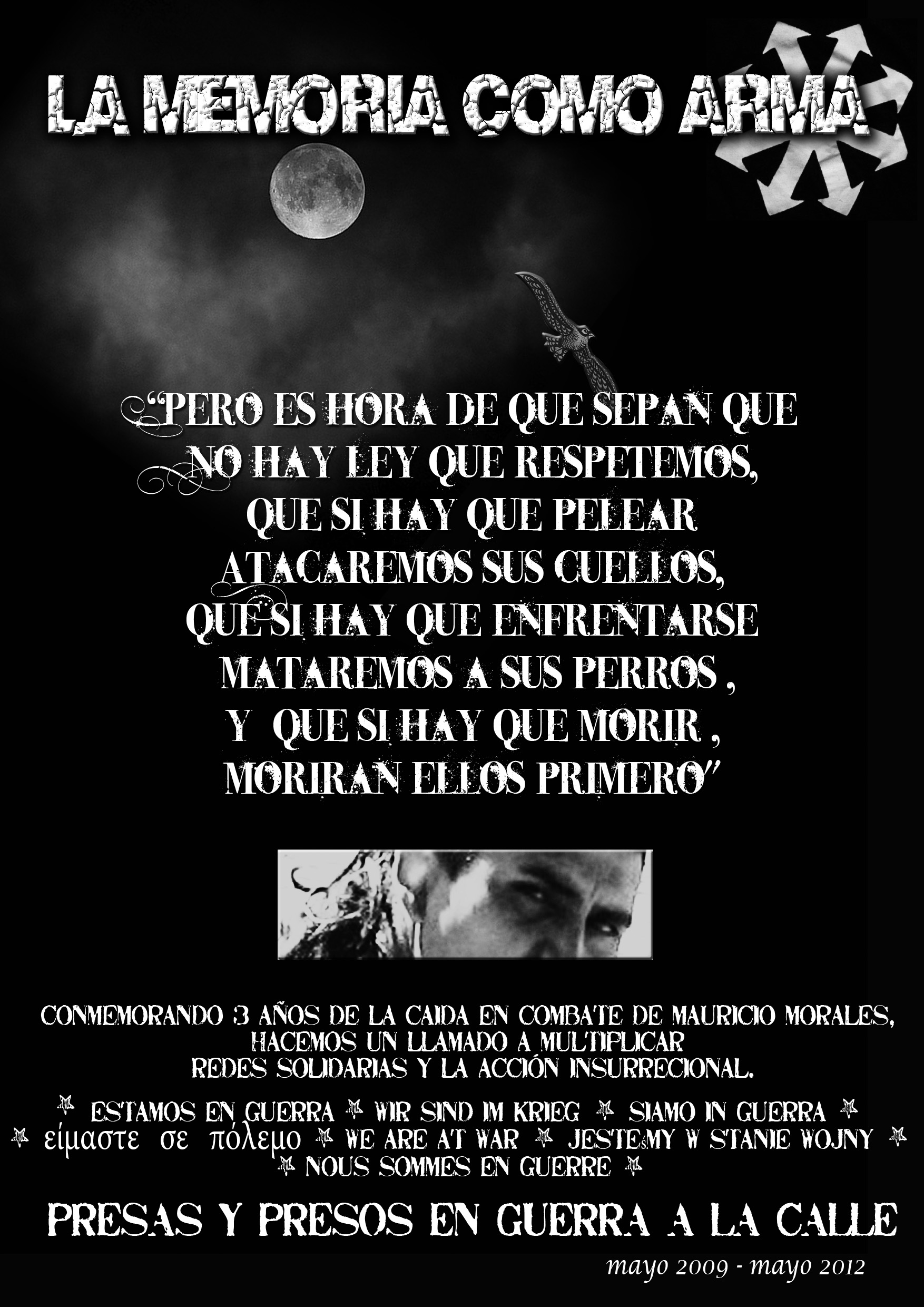
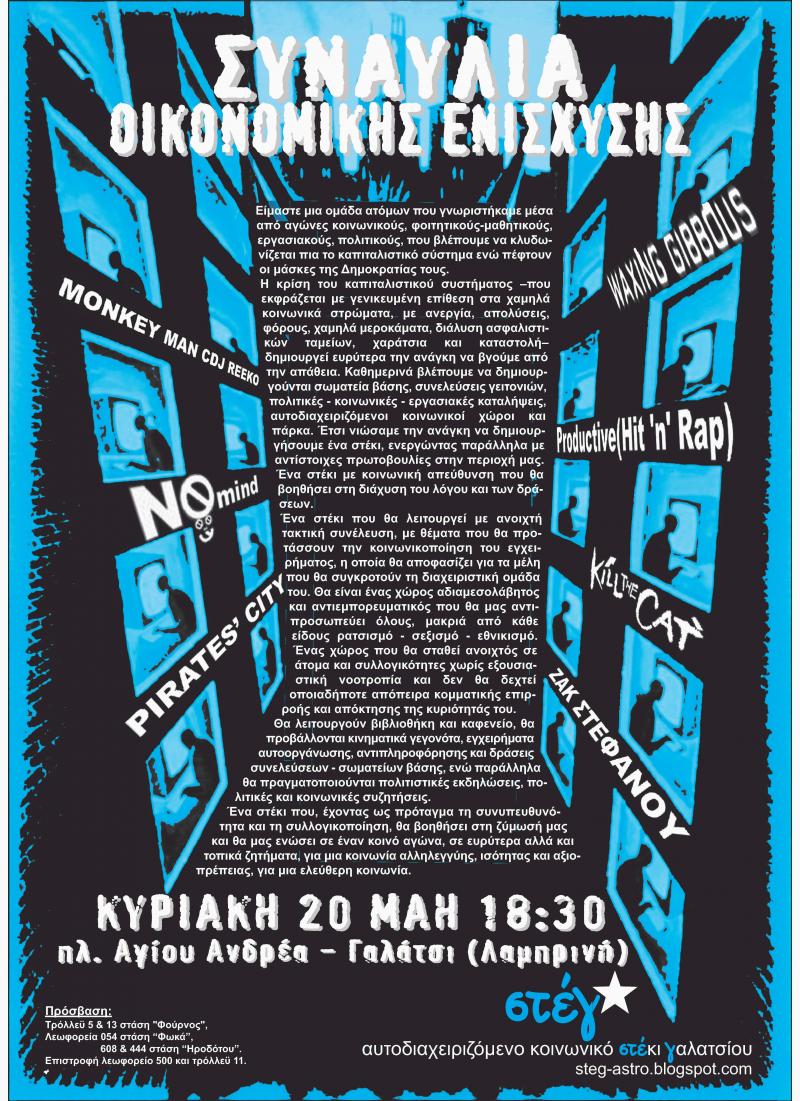








Nessun commento:
Posta un commento